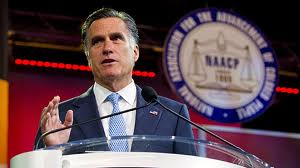Editor's note: For those new to redefinED, "blog stars" is our occasional compilation of good stuff from other ed blogs (with a newspaper op-ed thrown in now and then, too).
 Huffington Post: In search of the elusive, reform-minded school board member
Huffington Post: In search of the elusive, reform-minded school board member
What most people don't understand is that managing failure is just as hard as managing success. And this is, I believe, part of the reason school boards don't improve schools. Stability and coherence are watchwords in both the high-achieving and low-achieving systems. Administrators want to keep their staff happy and their board at arm's length. In both successful and failing districts, "micromanaging" by the school board is considered a no-no. I recall a woman addressing our board not along ago. "We're not supposed to rock the boat," she said. "But the trouble is that the boat has tipped over and we're lashed to our seats." Rocking the boat is exactly what must be done to effect change -- change, one hopes, that leads to better student outcomes.
I spent most of the last 10 years, on and off the board, pushing for a rigorous curriculum, stopping the disproportionate disciplining of African-American students, and complaining about the over-identification of special ed students (almost a quarter of our student body). But, for the most part, no matter what I proposed -- a new bus route, a paint job for the flag pole, or a curriculum -- I was mostly ignored. In order to get a pile of old lumber and rusty nails removed from the edge of a playground I had to threaten to dump it in the superintendent's driveway! Full post here.
Dropout Nation: The NAACP should listen to Romney (and Obama) on school choice
By embracing an education traditionalist thinking and Zip Code Education, the NAACP is aiding and abetting the damage to black children that it is supposed to defend. By taking money from NEA and AFT affiliates (including the $16,200 picked up by its New York branch from the AFT’s Big Apple unit during the union’s 2010-2011 fiscal year), the association is also betraying its obligations as a civil rights group to oppose policies that promote the same denials of equal educational opportunities against which it supposedly fights. In the process, the NAACP refuses to be a much-needed public policy voice and activist on behalf of transforming a failed system, alienating the very school reformers and black families (especially in urban communities) who are looking to build schools that black children (and all kids) deserve. And by adhering to the thinking of aging members who have a vested interest in maintaining failed ideas about how schools should serve black children, the NAACP has also lost opportunities to gain support from a new generation of African-Americans who realize that education is the most-important key to achieving social and economic equality.
When both Romney and Obama share common cause on systemic reform and on expanding choice, it is clear that the NAACP is on the wrong side of history. Now it is time for it to do the right thing. Full post here. (more…)
Beyond the boos for his vow to undo President Obama's health care overhaul, Republican president Mitt Romney stressed school choice in his speech to the NAACP today, talking up charter schools and suggesting Obama’s ties to teachers unions hampered his efforts to help disadvantaged kids.
 “If equal opportunity in America were an accomplished fact, black families could send their sons and daughters to public schools that truly offer the hope of a better life,” he said, according to his prepared remarks. “Instead, for generations, the African-American community has been waiting and waiting for that promise to be kept. Today, black children are 17 percent of students nationwide – but they are 42 percent of the students in our worst-performing schools.”
“If equal opportunity in America were an accomplished fact, black families could send their sons and daughters to public schools that truly offer the hope of a better life,” he said, according to his prepared remarks. “Instead, for generations, the African-American community has been waiting and waiting for that promise to be kept. Today, black children are 17 percent of students nationwide – but they are 42 percent of the students in our worst-performing schools.”
“Our society,” he continued, “sends them into mediocre schools and expects them to perform with excellence, and that is not fair. Frederick Douglass observed that, “It is easier to build strong children than to repair broken men.” Yet, instead of preparing these children for life, too many schools set them up for failure. Everyone in this room knows that we owe them better than that.”
Media coverage of today's event in Houston is focusing heavily on the negative reaction Romney received for his plans to scuttle "Obamacare." The Republican candidate got a more polite response to his education positions.
Romney noted his support for charter schools as governor of Massachusetts, despite opposition from teachers unions and Democratic lawmakers.He also pitched his plan to allow federal education funding to follow the student to the school of the parents’ choosing, including private schools “where permitted.”
The dig at Obama's education agenda came without mentioning the president’s name. (more…)
Editor’s note: Today, we introduce a new feature (even if we’re not sure the name will last) - an occasional compilation of bite-sized nuggets about school choice and education reform that are worth noting but may not be worth a post by themselves.
More anti-Muslim bigotry in school choice debates
It’s nearly impossible to go a month without hearing another example of anti-Muslim bigotry in a school choice debate.
The latest example: Louisiana state Rep. Valarie Hodges, who now says she wishes she had not voted for Gov. Bobby Jindal’s voucher bill because she fears it will promote Islam. “There are a thousand Muslim schools that have sprung up recently,” she said. “I do not support using public funds for teaching Islam anywhere here in Louisiana.”
The lawmaker’s comments echo Muslim bashing in school choice debates in Kansas, Alabama, Tennessee and other places in the past few months alone. Sadly, religious bigotry has long been a part of the school choice narrative. To repeat what we wrote in April:
The courts have ruled that vouchers and tax credit scholarships are constitutional. We live in a religiously diverse society and this pluralism is a source of pride and strength. We can’t pick and choose which religions are acceptable and unacceptable for school choice. And we should not tarnish whole groups of people because of the horrible actions of a few individuals. In the end, expanded school choice will serve the public good. It will increase the likelihood that more kids, whatever their religion, become the productive citizens we all want them to be.
Jeb Bush endorses pro-choice school board candidate
Jeb Bush doesn’t endorse local candidates often. But last week, he decided to back a Tampa Bay-area school board member who openly supports expanded school choice, including vouchers and tax credit scholarships.
Glen Gilzean, 30, is running against four other candidates to keep the Pinellas County School Board seat that Gov. Rick Scott appointed him to in January. The district in play includes much of the city of St. Petersburg and has more black voters than any other.
I don’t know how much Bush’s endorsement will help Gilzean. He's a black Republican in a district that leans Democratic (even if school board races in Florida are officially nonpartisan). But I do know this: Black students in Pinellas struggle more than black students in every major urban school district in Florida, and frustrated black residents are increasingly open to school choice alternatives. (more…)
 Gov. Romney gave a speech last month to a Hispanic audience calling for more school choice for parents. He promised, if elected president, to provide all children from low-income families and all special needs children with choice in a broad range of public and (where legal) private schools. This is a promise that should very much please school choice supporters.
Gov. Romney gave a speech last month to a Hispanic audience calling for more school choice for parents. He promised, if elected president, to provide all children from low-income families and all special needs children with choice in a broad range of public and (where legal) private schools. This is a promise that should very much please school choice supporters.
The likelihood of Congress actually passing such a plan may be small, but a president can provide leadership (although this could turn out to be like many of President Reagan’s pro-family promises during his campaigns that failed to yield actual policy changes).
While Romney’s broad rhetoric was attractive, what was distressing about his talk is the uncertainty as to just how his promise could be delivered. As I will explain, I fear the Romney team has not sufficiently thought through the details.
For public school choices that families would make, things are clear enough. Today, federal funding for low-income and special needs students is distributed in a very complicated way. Romney’s plan would simplify things by converting that funding into specific amounts per eligible pupil and, more importantly, that per pupil funding would follow the child to the school he or she actually attended, whether traditional, charter, magnet, out-of-district, or whatever – thereby providing the child’s school with extra money to help pay for extra services the children from low-income families may need in order to achieve at grade level. This is how federal aid to education should be working already and is overdue.
But for those families choosing private schools, the proposal is much murkier. Federal aid to education is a small share of overall school funding, and so a low-income child’s per pupil share of federal aid (say, $2,000 a year) would, in most cases, be far too little to pay the tuition at either a religious or secular private school. Put differently, we are talking about a sum that would be far less than the $7,500 per pupil now provided by the federal government (by way of vouchers) to low-income families in the District of Columbia who send their children to private schools participating in the voucher plan (a successful program that Romney supports continuing). (more…)
 Mitt Romney’s white paper on education, “A Chance for Every Child,” offers laudable support for increased parental choice and for other changes, such as tenure reform, that must occur to improve education in America. Like Obama, Romney wants to leverage federal dollars to move states in the right direction on public school choice, especially the removal of charter school caps and the adoption of open enrollment policies. He also advocates for private school choice “where permitted by state law.”
Mitt Romney’s white paper on education, “A Chance for Every Child,” offers laudable support for increased parental choice and for other changes, such as tenure reform, that must occur to improve education in America. Like Obama, Romney wants to leverage federal dollars to move states in the right direction on public school choice, especially the removal of charter school caps and the adoption of open enrollment policies. He also advocates for private school choice “where permitted by state law.”
But is his plan viable? And will he lead to implement it?
Romney would remove most of No Child Left Behind’s accountability standards in favor of expanded reporting on how schools are different. He would allow states to set their own standards and tests, but print the state’s National Assessment of Educational Progress (NAEP) outcomes on school and district report cards. NAEP brings much value to the discussion of education performance in America, but none to how an individual school district or school is performing because it does not test sufficient numbers or in every school and district. Implicit in this move - away from accountability by achievement measures towards improved information about schools - is that such information is lacking today. But parents are actually quite knowledgeable about local schools’ pluses and minuses and can access sites such as www.Greatschools.org for more detailed information.
So, for this information to be vastly more empowering than it is today, Romney recognizes that school choice would have to be dramatically expanded. That’s especially true for public school choice where, frankly, most of the schools will be for the foreseeable future.
The Romney plan seeks to expand choice primarily in two ways. First, he would convert Title 1 and federal special education (IDEA) funds that go to schools serving economically disadvantaged students. They would become vouchers that the eligible Title 1 and special ed students could take to any other school, including a private school, or even to a tutoring provider or digital school. Second, he would require states, as a condition for receiving these funds, to adopt open enrollment policies and eliminate caps on charter and digital schools.
The Title 1 and IDEA proposal is worthy of consideration. (more…)
 North Carolina: The legislative push is on to start a statewide tax credit scholarship program. (Associated Press)
North Carolina: The legislative push is on to start a statewide tax credit scholarship program. (Associated Press)
Florida: A former state board of education chair defends the state's decision to offer free tutoring services to low-income families. (Miami Herald)
California: Expanded school choice is at the heart of an increasingly tense feud within the Democratic Party between the teachers unions and supporters of education reform. (Reuters)
Washington: Charter school supporters hope the fourth time is the charm in finally bringing charters to one of the last states left without any. (Seattle Times) (more…)
 If President Barack Obama and Mitt Romney want to win over Latino voters, a new survey of five battleground states suggests they do two things: Talk up education. And emphasize school choice.
If President Barack Obama and Mitt Romney want to win over Latino voters, a new survey of five battleground states suggests they do two things: Talk up education. And emphasize school choice.
More than voters in general, Latino voters are more likely to say education is a leading issue, just behind the economy and jobs, found the survey, released Tuesday by the American Federation for Children and the Hispanic Council for Reform and Educational Options. The survey also found Latino voters are more likely than voters in general to support vouchers, tax credit scholarships and education savings accounts.
For instance, while 57 percent of likely voters said they supported vouchers, 69 percent of Latino voters did.
“Unfortunately a lot of our Latino families come from low-income areas (where) choice is the only way that they are going to be able to achieve that American dream, graduate high school and go on to make something of themselves,” Julio Fuentes, president and CEO of HCREO (and a Step Up for Students board member) said in the redefinED podcast attached below.
The survey results suggest both Obama and Romney will have challenges swaying Latino voters.
For Obama, it's a matter of position. The president has endorsed school choice options such as charter schools, but has stopped short of backing vouchers and tax credit scholarships. For Romney, it's a matter of emphasis. Hard-line positions on immigration may fire up the Republican base, but it's not a top-tier concern for Latinos.
"The immigration debate from a national level has taken the spotlight. And this educational crisis that we find ourselves in, especially within our Hispanic community, just seems to never be discussed," Fuentes said. "In a professional, politically roundabout way, we asked our candidates, President Obama and Gov. Romney, to basically give us their take. What's their plan when it comes to the Hispanic educational crisis?"
The survey was conducted with likely November voters in Florida, Arizona, Nevada, New Jersey and New Mexico. You can see the full results here.